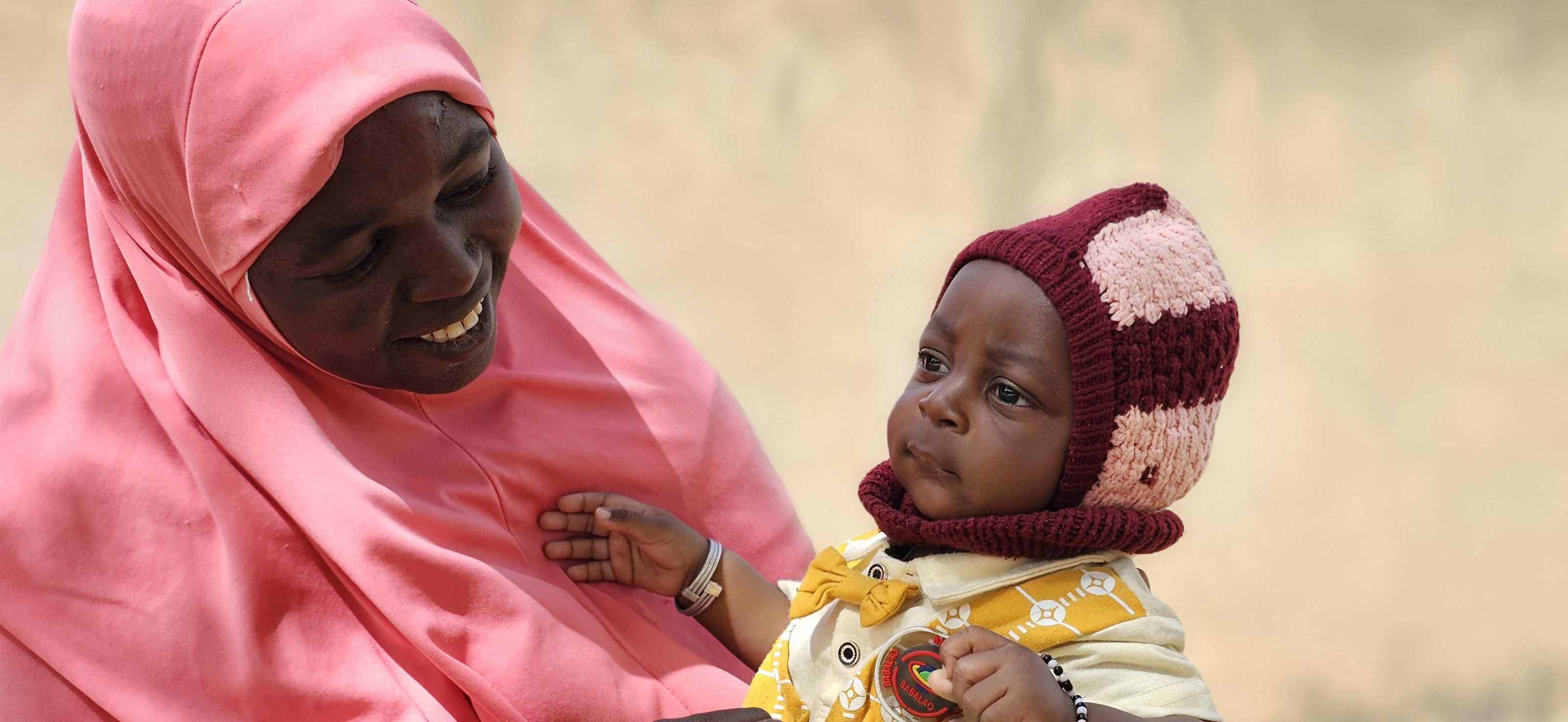Bassira Kadadey is a force to be reckoned with. Since her husband Oumarou’s work keeps him far from their home in Korkorey, a village in southwestern Niger, Bassira, 25, is often a single parent. Raising their 7-year-old son Adboul, 4-year-old daughter Nana, and 6-month-old baby Mohammed, would be nonstop on its own. But Bassira is also a community health worker. And it is by caring for others that Bassira is able to provide for her own.
Bassira Kadadey at her home in Korkorey
“Before this job, I always asked my family for help,” Bassira says. “But now I do everything for myself thanks to the income I earn. I’m the one who takes care of many of my family’s expenses: buying ingredients for meal preparation and clothes for myself and my children.”
Due to water scarcity in Korkorey, women often have to get water from a local well. Sometimes, Bassira spends an entire morning waiting to fill up her containers.
Because of the support of friends like you, Bassira received training in the Care Group model. This community-based approach brings together a volunteer network of 10-15 mothers who promote beneficial health and lifestyle practices such as home gardening and food preparation techniques for a diversified, nutritional diet.
Bassira conducts a nutrition awareness-raising session with her Care Group members in Korkorey.
After the Care Group was set up, Bassira was chosen by her community as the lead mother because of her literacy skills and sociability. As lead mother, she learned about integrated child care as well as facilitating a focus group and making home visits.
As the lead mother of her Care Group, Bassira teaches pregnant and breastfeeding mothers about the importance of nutrition. She also treats children for malaria, diarrhea and pneumonia. “We’ve noticed that this year the number of illnesses in our village has dropped considerably,” Bassira pointed out.
Back at home, Bassira practices what she teaches. As she explains, “Today I practice exclusive breastfeeding with my son Mohammed. Before, it was unthinkable because of false rumors about breastfeeding. Now that I’ve tried it, I’ve noticed for myself that Mohammed is healthier. … He rarely gets sick except for simple colds, and he is stronger and more active than Adboul and Nana when they were his age.”
With her training, Bassira can often treat her children for illnesses at home, but she also recognizes the importance of health facilities and advocates for their use. “If I don’t have the medicine, I take them to the health center for treatment. … At the health center, they have medicines and equipment to better manage illnesses. If you want to find out more about your health problem, you need to go to a health center.”
Bath time for baby Mohammed
As for what lies ahead, Bassira is very optimistic. “I think that, in the future, health [in our village] will improve significantly because we are trained in good health practices.”
Because of you, Bassira and her fellow community health workers will keep improving the health of their community. Thank you.

